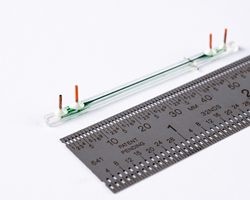[ad_1]
We welcome David to the advisory board and look forward to his insights and guidance at this exciting time in the company’s evolution as we embrace the new technology of gene therapy into the services we offer.
SOMERSET, N.J. (PRWEB)
September 12, 2019
Catalent, the leading global provider of advanced delivery technologies, development, and manufacturing solutions for drugs, biologics, gene therapies, and consumer health products, today announced that professor David Schaffer has been appointed to the advisory board of the company’s biologics business. Dr. Schaffer has played an integral advisory role on the gene therapy industry, as Catalent has moved into gene therapy services through the company’s May 2019 $1.2 billion acquisition of Paragon Bioservices, Inc., a leading viral vector development and manufacturing partner for gene therapies.
“We welcome David to the advisory board and look forward to his insights and guidance at this exciting time in the company’s evolution as we embrace the new technology of gene therapy into the services we offer,” commented Mike Riley, Vice President and General Manager of Catalent Biologics. “David’s depth of knowledge and expertise in this area will complement our team, especially advising on the new viral vector development and manufacturing technologies we have gained through our acquisition of Paragon Bioservices, Inc.”
The biologics advisory board was originally founded in 2015 to bring together scientific thought leaders and biotechnology industry veterans to strengthen and support Catalent’s growth in the rapidly evolving field. Professor Schaffer joins the current board’s members, Carolyn Bertozzi, Ph.D., Barry Buckland, Ph.D., Michael Buckley, Ph.D., Daniel R. Marshak, Ph.D., Edward R. Robinson, and Matthew Stober.
Professor Schaffer serves as Director of the Berkeley Stem Cell Center, in addition to holding a position as a professor of chemical and biomolecular engineering, bioengineering, and neuroscience at University of California, Berkeley. He completed his bachelor’s at Stanford University, before undertaking his doctorate at the Massachusetts Institute of Technology, and postdoctoral training at the Salk Institute. His research at Berkeley applies engineering principles to enhance gene therapy and stem cell approaches to treat human disease.
He is the co-founder of three companies: 4D Molecular Therapeutics, Inc., which uses a novel technology platform to engineer optimized, proprietary adeno-associated viral (AAV) vectors for gene therapy; Ignite Immunotherapies, Inc., which is developing novel oncolytic virus technologies as cancer therapies in partnership with Pfizer; and Valitor, Inc., which is developing a novel protein-polymer conjugation technology to develop greatly enhanced protein biologics for a range of disease targets.
Catalent Biologics provides advanced technologies and integrated solutions for biologic and biosimilar development and manufacturing, from DNA to fill/finish and commercial supply, through its extensive Biologics network including: Bloomington, Indiana, where the company recently announced a twenty-first commercial launch of a fill/finish product, and; Madison, Wisconsin, home of Catalent Biologics’ proprietary GPEx® technology for stable, high-yielding mammalian cell lines with twelve approved molecules. For more information on Catalent Biologics, visit biologics.catalent.com.
About Catalent Biologics
For more than two decades, Catalent Biologics has built capabilities and experience in development, manufacturing, and analytical services for new biological entities, gene therapies, biosimilars, and antibody-drug conjugates. Catalent Biologics has worked with 600+ mAbs and 80+ proteins, and 12 biopharmaceutical drugs produced using GPEx® technology have been approved and marketed, with more than 120 ongoing clinical trials utilizing therapeutic candidates developed using the GPEx platform. A further 25 commercially-approved products have employed Catalent Biologics’ capabilities through to aseptic fill/finish. Catalent Biologics’ latest addition, Paragon Gene Therapy’s AAV development through commercial-scale manufacturing facilities in Baltimore, Maryland, have produced over 100 clinical GMP batches across 40 programs. Using advanced technology and tailored solutions for clinical through commercial supply, Catalent Biologics brings better biologic treatments to patients, faster. For more information, visit biologics.catalent.com
About Catalent
Catalent is the leading global provider of advanced delivery technologies, development, and manufacturing solutions for drugs, biologics, gene therapies, and consumer health products. With over 85 years serving the industry, Catalent has proven expertise in bringing more customer products to market faster, enhancing product performance and ensuring reliable global clinical and commercial product supply. Catalent employs nearly 13,000 people, including over 2,400 scientists, at more than 35 facilities across five continents, and in fiscal year 2019 generated over $2.5 billion in annual revenue. Catalent is headquartered in Somerset, New Jersey. For more information, visit http://www.catalent.com
More products. Better treatments. Reliably supplied.™
Share article on social media or email:
[ad_2]
Source link











